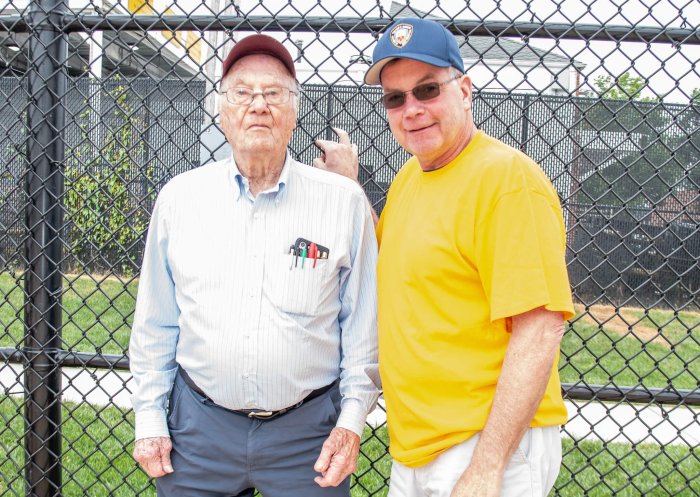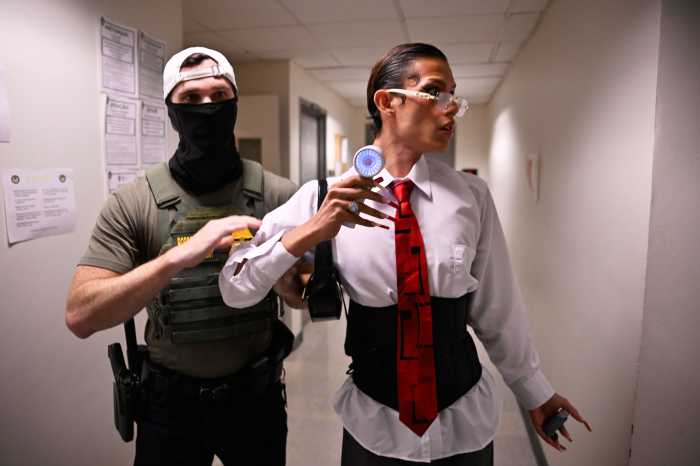I can remember it as if it was just yesterday. Feb. 22, 1958, the real Washington’s Birthday – the day that my family left the Bronx and officially moved to Hicksville. My father put my mother and three kids into his 1950 two-door Chrysler and headed for the Whitestone Bridge (Throgs Neck Bridge was not built yet). It was a Saturday!
I can remember my mother was upset over leaving the Bronx. She believed that the Bronx air was better for us.
On Miller Road was a brand new Cape Cod frame house. The model of that house was on the corner of Woodbury Road and East Street. My parents were wise enough to have extras added to the house. A one car garage, cost $300; half dormer completely framed with a center hallway $800; complete cement basement entrance (with door and drain) $150; extra bathroom upstairs $150 (complete). The total cost of the house was $16,000 with a 30-year mortgage. They had achieved the “American Dream.”
My sisters and I immediately made friends. Within a span of 15 houses there were at least 60 to 70 children. Our family with three kids was considered small. The average family had four to five kids. Some even had six to eight. Yes, it was the middle of the Baby Boomer Generation. Friends were many. There were families with boys, there were the Hellers (Warren, Billy and Paul), Hoffmans (John and Mike), Spadolas (Billy, Tommy and John), Sweeneys (Mickey), Connors, (Mike and Jerry), Troys (Tim, Terry, Kevin). Rinaldis (Frank and Phil), Cooks (John and Tommy), Olsens (Larry), Personens (Ray, Mark, Eddie), Doners (Alan), Grants (Peter) and the Farrells (Rickey), just to name a few. Every family also had daughters.
We all had nicknames. My nickname was given to me when someone asked me my last name, which is Furgiuele, but when I stated it too quickly they could only make out, “Fud.” People have called me that since. Even my in-laws called me Fud. First encounter with the neighborhood kids was when a house was being built next to the Heller’s house. We were having a dirt bomb fight. I threw a dirt bomb and it struck Heller’s garage. Warren yelled over to me saying that if it happened again my family would have to pay for a new garage. Everyone laughed, it seemed that suddenly we were all good friends.
There were only three sports that we played. Baseball, basketball, and football. Depending which season it was that is what was played. All were played in the street. Basketball was the most difficult. The court consisted of a hoop nailed onto a plywood surface, which was then nailed onto a telephone pole. Football had the telephone poles to mark the end zones, and three completed passes were a first down. Baseball had the bases painted in the street. Upon request parents would gladly move their cars so we could play. If we really wanted to have a big game we all got on our bikes and rode to Woodland Avenue School – plenty of land, three baseball fields and a basketball court.
During the school year on weekdays we usually hung out until 6 p.m., suppertime was upon us and it was getting dark and we had homework to do. Saturday mornings was recreation at Woodland Avenue School. We would all meet at 8:30 a.m. and ride our bikes to the school and for three hours it was dodgeball. Saturday afternoon we would go to confessions at St. Ignatius. The lines would be very long for confession. I remember Father Vistius, who had the shortest line; he would come out of the booth and move kids on to his line. Boy was he tough. He was a good man and a very good priest. After confessions everything started to close down. Remember there were no Saturday afternoon masses and they were all in Latin, not English. The Gertz Department Store sign, in Mid – Island Plaza (now Broadway Mall) stated, “Saturdays Open Till 6 p.m.”
On Sunday mornings we would meet up around 7 a.m, and all of us would walk to Sunday Mass at St. Ignatius. After church families would go to Englerts Bakery (corner of East Marie Street and Broadway) and then down to Holden’s Stationery for the Sunday paper. Our gang would walk home and stop at the Woodbury Deli (opened Sundays until noon), for a YooHoo and a buttered roll, cost 25 cents. Life was simple and calm. The rest of Sunday consisted of playing on the block and then everyone went in for Sunday Dinner with Family. After dinner we’d lounge around the house. Sunday night was Wild Kingdom, Walt Disney Hour, Ed Sullivan Show and Bonanza.
The first person to move away was Ricky Farrell. His family moved to Huntington Station. We all made a pact to visit. We all planned to ride our bikes to Huntington Station and we all told our parents. Quote from every parent was, “That’s nice, be careful!” Oh my, the world was much simpler then. We set out early on a Saturday, rode our bikes all the way to Huntington Station and visited Ricky for the day. We all rode back home arriving after dark. All of the parents said hello. Boy were we tired. You have to remember we were all between the ages of 10 – 12 years old. Next day was Sunday, we all met at 7 a.m. for church. No one was late, and all we talked about was our trip to Huntington Station and our friend Ricky.
When a family bought a new appliance for the house, the appliances were delivered in big cardboard boxes. After installations the company would leave the big boxes by the curb. We came along and took the boxes down to the Northern State Parkway, where we would ride in those boxes down the slopes of the parkway. The slopes became known as Cardboard Hill. We spent many hours riding those boxes. We would also build forts from those boxes. That wasn’t the only thing we would take out of the garbage. We would look for families throwing out old Baby Carriages. We would take the wheels from those old carriages and make jalopies. We would ride these jalopies all over. One person would sit to steer and the others would push. Not only did we take them to Cardboard Hill, but even to Syosset to ride the hills down to the Davega Department Store on Jericho Turnpike (which is now Industrial Park). They were really steep and what a ride.
We would also scavenge for old bikes being thrown out. We stripped them down, painted the frames. Our parents would buy new tires. We were set. No one really bought a new bike back then.
Mr. Heller had an old U.S. Army Tent from World War II. It was 15 by 20. He worked for McKeon’s Lumber (on Old Country Road by LILCO and the railroad tracks). He was nice enough to build a wood platform to put the tent on. Every summer he would put that tent up for all of us to use. All of us had a cot to sleep in. That tent was used for everything, especially for us guys to sleep over. I’m talking about five to 10 kids per night. We would sneak around the neighborhood to go swimming in everyone’s pool. We had many sleepovers and they were great. Life was real good!
Next week’s episode: “The Sump and Everything Changed.”
Pete “Fud” Furgiuele


































